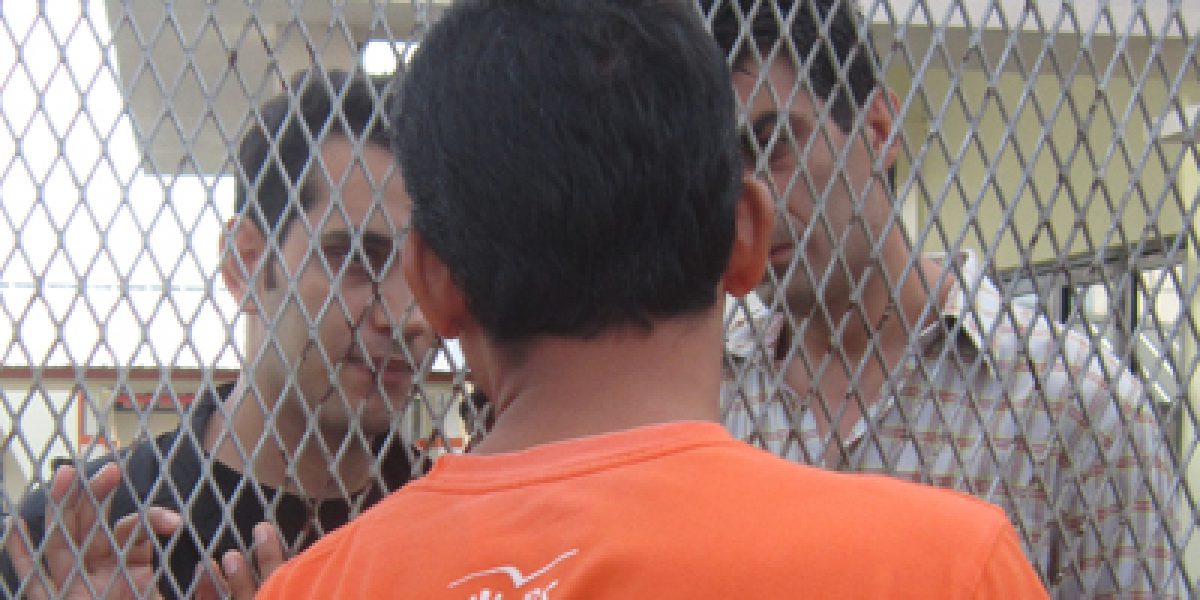Australia: shutting the door in the face of a global humanitarian crisis
20 November 2014

Yogyakarta, 20 November 2014 – The Jesuit Refugee Service observes with deep sadness yet another sudden retroactive change in the policy of Australia towards people seeking international protection in Southeast Asia. Yesterday, the government of Australia announced its decision to stop the resettlement of refugees who had registered with the UN refugee agency (UNHCR) in Indonesia on or after the 1 July 2014. The number of refugees resettled by Australia from Indonesia will also be further reduced in 2015.
This is another blow for those attempting to gain access to protection via ‘regular’ channels available in Southeast Asia, namely the UNHCR refugee status determination (RSD) process. So far the change in Indonesia will affect more than 1,911 asylum seekers, mainly families from Afghanistan, Burma, Iraq, the Palestinian territories, Sri Lanka and Syria. More than 4,300 refugees, who if returned home would be likely to experience serious harm, currently reside in Indonesia. A further 6,200 are currently awaiting the outcome of their application to UNHCR.
Due to the lack of any asylum legislation in Indonesia, or support provided to refugees, their fate lies in the hands of other nations willing to receive them on humanitarian grounds. This new policy of the Australian government will not stop people from going to Indonesia to seek UNHCR RSD and awaiting resettlement; it simply shifts the responsibility of resettlement to other countries and increases the burden on Indonesia, a country that only recently requested increased resettlement from Australia.
Danial* a former UN staff member of the Hazara minority from Afghanistan, fleeing threats to his life and seeking asylum in Indonesia, reflects on the recent decision:
“Limiting the number of humanitarian visas for refugees and rejection of those registered after July 2014 is disappointing. A cloud of grave concern has risen among refugees in Indonesia. The Australian government is ignoring the plight of those who have fled their homes fearing violence. This policy is of no help. It brings more uncertainty to the lives of refugees. It will mean that children will be without the opportunity to attend school for years to come.”
“I’m here with seven other family members from Afghanistan. I worked for seven years with the UN and international community, including with the international forces. My car was hit with explosive devices left by the Taliban; I received threats from local commanders, government officials and the authorities. The Taliban came looking for my family on numerous occasions. I saw my friends killed; I was in the explosions; I collected bits and pieces of my friends…Regardless of the change in government policy in Australia, I cannot risk my life by going back to Afghanistan.”
This sudden change follows an increase in the number of asylum applications in Indonesia over the last two months, with numbers returning to levels experienced in 2012 and 2013. This clearly demonstrates that stopping the boats does not resolve the plight of those in need for protection. The Australian government narrative – stopping the boats leaving Indonesia to save lives – does not add up.
This ‘fortress’ mentality of shutting the door in the face of increased humanitarian suffering is heartbreaking, cynical and out of touch with reality. Fortress policies put refugees at increased risk as they are forced to find alternative routes in search of safety. Smugglers are the only remaining option.
This new policy will be interpreted as a betrayal of the former Australian rhetoric of fostering regional protection for refugees. JRS hopes that Australia will renew its stand to support initiatives that increase protection for refugees in the region. We further call on Southeast Asian nations to remain committed to the humanitarian principles of non-refoulement and increasing the welcome and protection of people fleeing persecution in their home countries. Countries like Lebanon, offering hospitality to more than one million Syrian refugees, are an example to follow, unlike the policies being discussed and implemented by many Western nations.
Developing countries host 86 percent of the world’s refugees, compared to 70 percent 10 years ago. This is the highest number in more than two decades. Pakistan is host to the largest number of refugees worldwide (1.6 million), followed by Iran, Lebanon, Jordan, and Turkey. Lebanon currently hosts the largest number of refugees in relation to its national population, where one out of four persons is a refugee.
The only way of stopping people fleeing is to ensure their safety at home. Yet many of the root causes and conditions forcing people to leave remain unaddressed. Closing our doors and hearts to problems will neither guarantee human dignity, nor enhance global or regional protection and stability.
* The name has been changed to protect the source.


